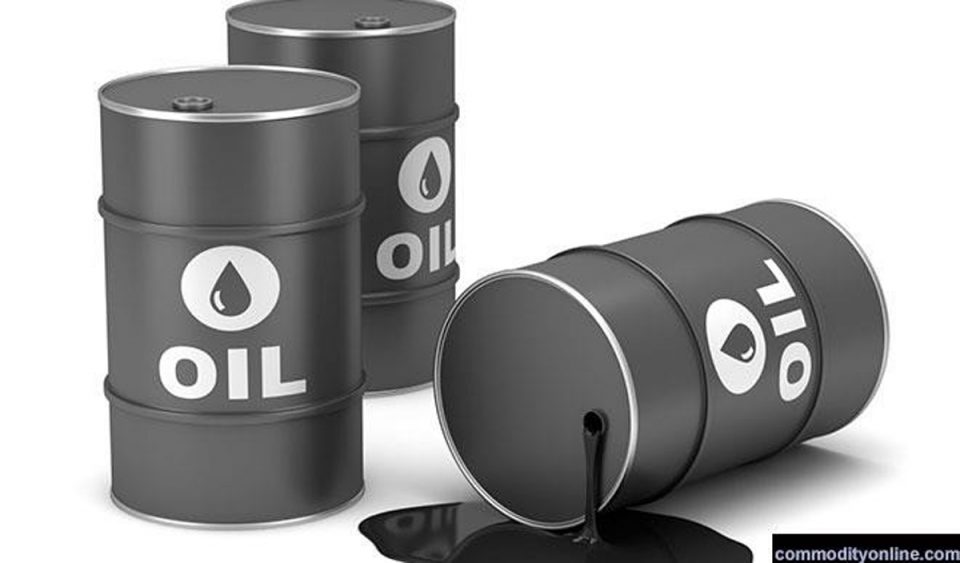Photo caption: Oil
A steep drop in crude oil prices largely due to U.S. President Donald Trump’s tariffs will squeeze budgets of emerging market oil exporters, analysts said, while the potential economic slowdown could also curb any benefits for importers.
Concerns about the impact of a tit-for-tat trade war on global growth and demand for oil sent Brent crude prices plummeting by more than 20% within a week to a four-year low after Trump announced his sweeping tariffs on April 2.
Prices have since recovered some ground to around $66 per barrel from below $60.
Turkey, India, Pakistan, Morocco and much of emerging Europe relying on oil imports are set to see some benefits from lower prices of crude. But oil exporting states including Gulf countries, Nigeria, Angola, Venezuela and to some degree Brazil, Colombia and Mexico will feel the pain of losing a chunk of hard-currency revenues, investors said.
“Losers will be hit relatively harder than the upside seen in importing countries,” said Thomas Haugaard, portfolio manager for emerging market debt at Janus Henderson Investors.
“Oil exports often contribute considerably to public finances which will spill over into credit risk premiums.”
Current oil prices are well below the average budget assumptions of $69 across main oil exporters’ year-ahead projections, as calculated by Morgan Stanley, flagging Angola and Bahrain as the countries most sensitive.
Angola is already feeling the pinch.
It had to pay $200 million last week after JPMorgan issued a margin call on the southern African nation’s $1 billion total return swap, the finance ministry said. The total return swap is a loan issued by the lender last December, backed by Angola’s dollar bonds.
“The current context has affected the commodities market and emerging market Eurobonds, including the trading level of Angolan Eurobonds, and has triggered a margin call. Angola fulfilled its obligation on time and in cash,” the ministry told Reuters on Monday.
Angola opted for the collateralised loan to manage liabilities at a time when its Eurobond market access faced uncertainties due to high external debts to a range of foreign creditors including China and other commercial lenders.
Like other so-called frontier issuers, average yields on Angola’s dollar bonds have surged to double digits in the selloff of risky assets following the U.S. tariffs.
The International Monetary Fund classifies Angola’s debt as being at risk of high debt distress, but the Angolan government said the country’s debt trajectory remains solid and on a stable path.
SOME DEBT TRADES UNRAVEL
The drop in the price of crude is also undoing frontier markets debt trades that had held up for at least a year, JPMorgan said in a research note.
It cited the Nigerian carry trade, which involved investing in the oil exporter’s Treasury bills on bets the naira currency will not depreciate quickly against the dollar. Investors now risk incurring losses if the lower crude price hits the naira.
“The central bank has had to increase its dollar sales interventions in order to avoid convertibility risks and limit a disorderly move,” JPMorgan said in a note to investors.
A sustained drop in the price of oil could undermine recent progress on economic reforms, and even reverse progress, said analysts.
Oil accounts for about 90% of Nigeria’s exports and crude earnings were set to fund 56% of this year’s budget. The government forecast oil at $75 a barrel in the 2024 budget but has been forced to change its plan.
“We are going back to the drawing board to look at our budget all over again,” Finance Minister Wale Edun told reporters last week.
Gulf oil producers like Saudi Arabia and the United Arab Emirates could weather the storm better given higher reserve levels, relatively low debt and some strides in economic diversification, economists said.
Still, a drop in revenue could complicate their ability to spend on new projects, including de facto OPEC leader Saudi Arabia.
On paper, emerging market oil importers should enjoy benefits from lower import bills, improved current account deficits and a positive impact on inflation pressures – but they also face risks.
“The lower oil price outlook is positive for oil importers, albeit unlikely to counterbalance the significant headwinds from the trade war and the significant downside risks,” said Monica Malik, chief economist at Abu Dhabi Commercial Bank.
=== Reuters ===




